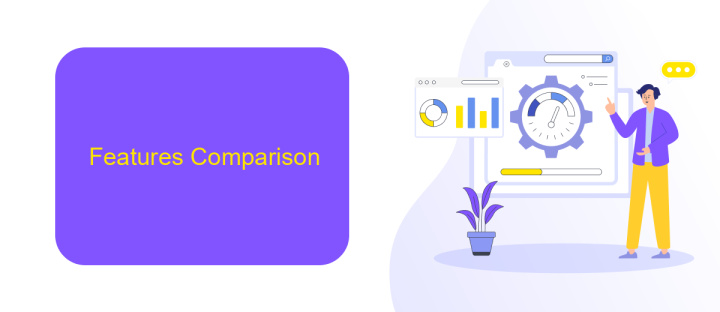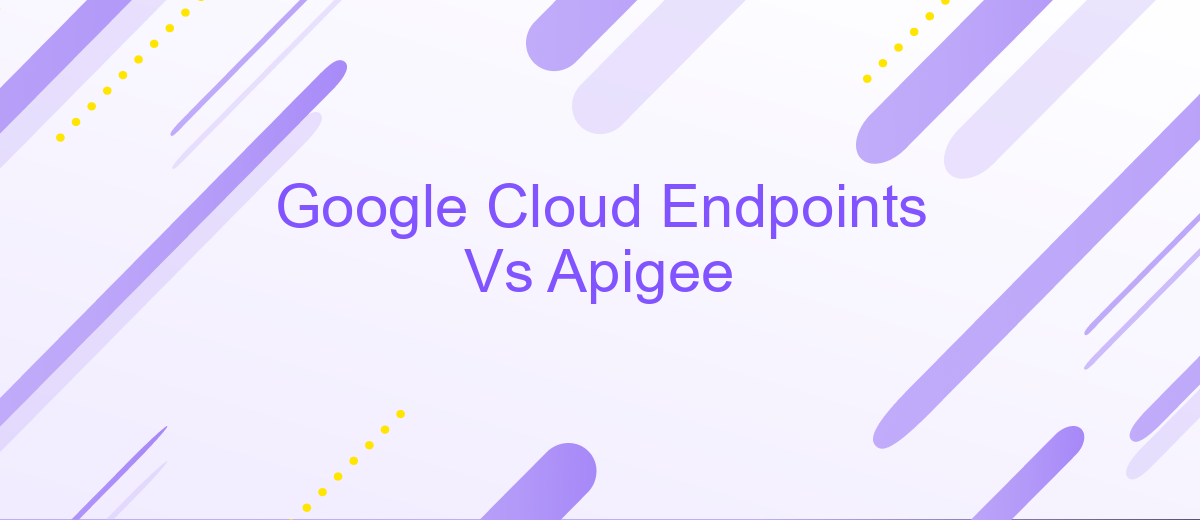Google Cloud Endpoints Vs Apigee
In today's rapidly evolving digital landscape, API management has become crucial for businesses looking to streamline their operations and enhance connectivity. Google Cloud Endpoints and Apigee are two powerful solutions that offer robust features for API management. This article delves into a comparative analysis of these platforms, exploring their strengths and weaknesses to help you make an informed decision.
Introduction
In today's rapidly evolving digital landscape, businesses are increasingly relying on robust API management solutions to streamline their operations and enhance their digital offerings. Google Cloud Endpoints and Apigee are two prominent platforms that provide comprehensive API management services. Both solutions offer unique features and capabilities that cater to different business needs, making it essential to understand their core functionalities and differences.
- Google Cloud Endpoints: A fully managed service designed to create, deploy, and manage APIs on Google Cloud.
- Apigee: An advanced API management platform that provides tools for API analytics, security, and monetization.
Choosing the right API management solution can significantly impact your integration processes and overall business efficiency. Platforms like ApiX-Drive can further simplify these integrations by providing seamless connectivity between various services and applications. Understanding the strengths and limitations of Google Cloud Endpoints and Apigee will help businesses make informed decisions that align with their strategic goals.
Features Comparison

Google Cloud Endpoints and Apigee both offer robust solutions for API management, but they cater to different needs. Google Cloud Endpoints is a lightweight, fully managed service designed for developers looking to deploy and manage APIs quickly. It integrates seamlessly with other Google Cloud services and provides essential features like authentication, monitoring, and logging. Endpoints is ideal for small to medium-sized projects where simplicity and quick deployment are key.
On the other hand, Apigee is a more comprehensive API management platform suitable for enterprises requiring advanced features. Apigee offers extensive capabilities including API analytics, developer portals, and monetization options. It also supports complex API traffic management and security policies. For businesses needing intricate API integrations, tools like ApiX-Drive can complement Apigee by simplifying the automation of data flows between various systems. ApiX-Drive can help streamline the setup and management of these integrations, making it easier to maintain and scale API solutions.
Use Cases

When choosing between Google Cloud Endpoints and Apigee, understanding their specific use cases can help you make an informed decision. Both platforms offer robust API management solutions, but they cater to different needs and scenarios.
- Small to Medium Enterprises (SMEs): Google Cloud Endpoints is ideal for SMEs that require a cost-effective solution for managing APIs with integrated security features and monitoring capabilities.
- Large Enterprises: Apigee is better suited for large enterprises needing advanced API analytics, monetization, and extensive customization options.
- Quick Integration Needs: Services like ApiX-Drive can complement both Google Cloud Endpoints and Apigee by providing seamless integration capabilities between various applications and APIs, facilitating quicker deployments.
- Microservices Architecture: Google Cloud Endpoints is a good fit for organizations adopting a microservices architecture due to its lightweight nature and deep integration with Google Cloud Platform.
- Complex API Ecosystems: Apigee excels in managing complex API ecosystems with its comprehensive API lifecycle management and developer portal features.
In summary, Google Cloud Endpoints is a straightforward, scalable solution for smaller projects, while Apigee offers advanced features suitable for larger, more complex environments. Services like ApiX-Drive can further enhance the integration and automation capabilities of both platforms, ensuring a smoother workflow.
Pricing and Support

When comparing Google Cloud Endpoints and Apigee, pricing and support are crucial factors to consider. Google Cloud Endpoints offers a pay-as-you-go model, which is cost-effective for businesses that need flexibility. Apigee, on the other hand, provides a more comprehensive pricing structure, including various tiers that cater to different business sizes and needs.
Support is another area where these two services differ. Google Cloud Endpoints offers standard support as part of its Google Cloud Platform support packages, which include various levels of assistance based on your subscription. Apigee provides more specialized support with dedicated teams and extensive documentation, ensuring that businesses can get the help they need quickly and efficiently.
- Google Cloud Endpoints: Pay-as-you-go pricing, integrated with Google Cloud Platform support.
- Apigee: Tiered pricing models, dedicated support teams, and extensive documentation.
For businesses looking to integrate these services seamlessly, tools like ApiX-Drive can be highly beneficial. ApiX-Drive simplifies the integration process, allowing companies to connect various APIs and services effortlessly. This can be particularly useful when managing multiple endpoints or transitioning between different API management platforms.
Conclusion
In conclusion, both Google Cloud Endpoints and Apigee offer robust solutions for API management, each with its own strengths and ideal use cases. Google Cloud Endpoints is well-suited for developers looking for a streamlined, cloud-native solution that integrates seamlessly with other Google Cloud services. It provides a cost-effective and scalable option for managing APIs with minimal overhead.
On the other hand, Apigee stands out with its comprehensive feature set, offering advanced analytics, monetization options, and extensive policy management. This makes it an excellent choice for enterprises requiring a more sophisticated approach to API management. For those looking to further streamline their integration processes, services like ApiX-Drive can be invaluable. ApiX-Drive simplifies the integration of various applications and services, enhancing the overall efficiency of your API management strategy. Ultimately, the choice between Google Cloud Endpoints and Apigee will depend on your specific needs, budget, and the complexity of your API ecosystem.


FAQ
What are the primary differences between Google Cloud Endpoints and Apigee?
Which is easier to set up and use for a small team?
Can both Google Cloud Endpoints and Apigee handle API security?
How do they compare in terms of scalability?
Are there tools available for automating API integrations with these platforms?
Apix-Drive is a universal tool that will quickly streamline any workflow, freeing you from routine and possible financial losses. Try ApiX-Drive in action and see how useful it is for you personally. In the meantime, when you are setting up connections between systems, think about where you are investing your free time, because now you will have much more of it.

